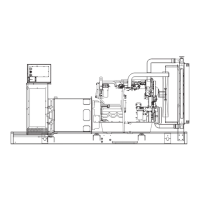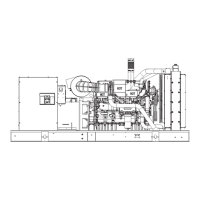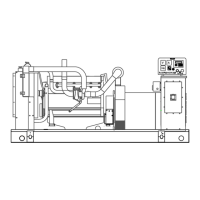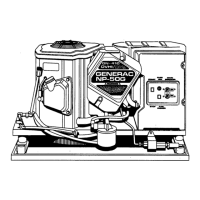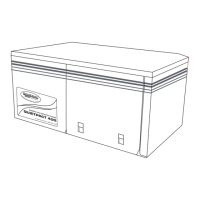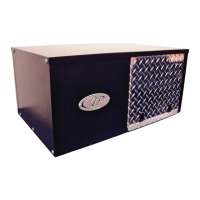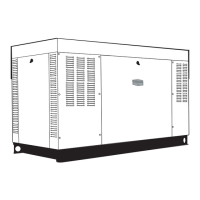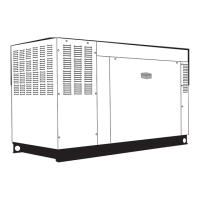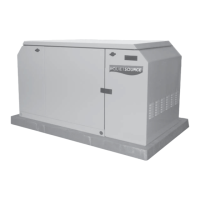Operation
36833 C MGG100M Operating Manual 39
General Wiring Considerations
• When routing the interface wiring, do not route it up against anything that could cut or chafe the wiring. Do not
route the wire up against any hot or potentially hot object.
• Make sure that all the electrical components share a common hard wired ground.
• Check with your local building inspector to determine what you must do to comply with the local regulations for
grounding of this type of permanent installation.
VERIFY THE SYSTEM IS PROPERLY GROUNDED BEFORE APPLYING POWER. DO
NOT APPLY AC POWER BEFORE CONFIRMING THAT GROUNDS ARE CONNECTED.
ELECTRICAL SHOCK CAN CAUSE SERIOUS OR FATAL INJURY. THE NEC MAY
REQUIRE THAT THE FRAME AND EXPOSED CONDUCTIVE SURFACES (METAL
PARTS) BE CONNECTED TO AN APPROVED EARTH GROUND. LOCAL REGULA-
TIONS MAY ALSO REQUIRE PROPER GROUNDING OF THE UNIT.
This unit must have a battery installed for operation. The battery is used during starting and
during operation. If engine operation is attempted while the battery is removed, damage to
the engine's electrical components may result.
Generator Cam Lock Connections
The generator cam lock connections are located inside the customer disconnect switch box. These receptacles
provide connection points for attachment of external loads to the generator.
WARNING
It is HIGHLY RECOMMENDED that only a trained and licensed electrician perform any
wiring and related connections to the generator. Installation should be in compliance
with the National Electric Code (NEC) as well as any local or state guidelines as
required by law. Failure to follow proper installation requirements may result in
equipment or property damage, personal injury or death.
IMPROPER OR INCORRECT CONNECTIONS TO A BUILDING’S ELECTRICAL SYSTEM
CAN CAUSE POTENTIALLY LETHAL VOLTAGES TO BACKFEED INTO UTILITY
LINES. THIS MAY RESULT IN INJURY OR ELECTROCUTION TO UTILITY WORKERS
NEARBY. MAKE SURE THE GENERATOR IS SUPPLYING POWER TO AN ISOLATED
OBJECT OR BUILDING THAT IS NOT CONNECTED TO ANY UTILITY LINES.
Connections should be made by routing the power cables equipped with series 16 taper nose 400A, 600V cam lock
plugs up through the opening in the bottom of the box and into the cam lock receptacles. Secure the connection by
rotating the plug a half turn to the right. The customer disconnect switch box door is equipped with a mechanical
safety interlock which doesn’t allow the door to open with the disconnect switch closed (ON position). The input
terminals of the customer disconnect switch will still be live with the door open and engine running.
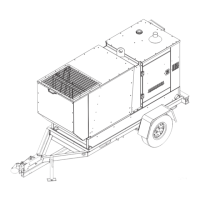
